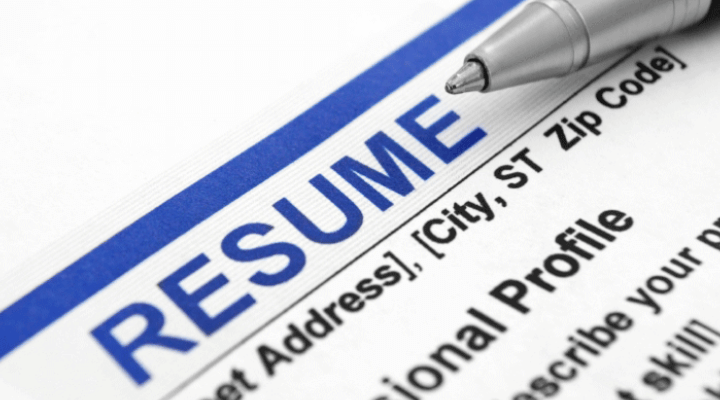I’m fortunate to have several great, smart colleagues with whom I can discuss just about anything, both professional and personal. Altogether, they represent nearly a century of professional experience to which I routinely turn with candor, and without hesitation. Individually and collectively, in my view they’re best-in-class. Even if I don’t always follow their advice to the letter (I usually do), it’s rare their insights don’t significantly shape my conclusions and way ahead. Yesterday, a conversation turned to resumes. I was a little surprised to hear one friend say, “Oh, I don’t have an up-to-date resume.” Here are a few reasons you should treat your resume like a living, evolving document that you keep at your fingertips.
IN THE BREECH
You have a job. You love it. You’d never leave it. You still need a resume on hand, in the breech, so to speak, ready to fire. You may not be looking for an opportunity, but one could drop into your hands. If you’re not ready to respond quickly—that is, if you have to spend three or four days composing your resume—that opportunity could very well slip right through your fingers. Further, I think that a relatively young resume—one that was composed from scratch last week—will naturally be less refined, sound less mature than one that you’ve nurtured over the course of several years. Resumes are nothing more than another piece of writing, hopefully with a clear argument and evidence: hire me, and here’s why. And like any piece of writing, editing and revision will only make it better, especially after it’s been put away for a while and read with a clear mind.
TAILOR MADE
Every job opportunity doesn’t demand a brand new resume. But neither does one size fit all. My own resume consists of 7 parts: Objective, Summary, Accomplishments, Related Experience, Education, References on Request, and Products & Publications. What I’ve found is that the higher the topic on the page, the more likely that language or content will change and evolve depending on the audience with whom I’m sharing the document. For instance, the first lines of my resume announce my objective: “To obtain a position as a . . . .” That objective statement was composed for one relatively broad, general purpose. Clearly, that objective won’t work for a relatively broad, general purpose that’s even slightly different. The necessary change might only be a word or two, but it will inevitably change. So before I share the resume, I edit that objective statement, revise it, work to make it resonate with the audience to whom I might send it.
My Summary, 78 words that work to quickly characterize Ed Ledford for the reader, will evolve some, as well. In fact, most every time I read that summary, I fiddle with it some, hopefully making it a little better, a little more powerful, a little tighter, a little more memorable. While I don’t usually find I change much the language of the Accomplishments section—a series of one-sentence statements describing some key accomplishments over the course of my career—I do find that I re-order them. Presuming one may only read the first one, two, or perhaps three accomplishments, I try to imagine which most directly respond to what the reader may be seeking for the specific position. Since none of them are tied to a particular job I’ve had or a point in time, I don’t have to worry about sequence. Each stands on its own.
STABILITY
On down the page, Related Experience, Education, and References on Request do not change much. These topics are pretty static. Related Experience really only changes when I obtain a new position or significantly broader or different responsibilities. My references are long-term professional relationships, people on whom I can count to speak on my behalf, even if they’re cold-called. I will keep Products & Publications up-to-date, but that’s just a matter of adding anything new worth mentioning or, perhaps, deleting something that’s become stale.
Here’s the point: good resumes evolve. I save every single version and refer back to earlier versions regularly. But the resume I’m ready to deploy today is somewhere around the 50th generation. And each generation is a little different. But it’s pretty much always ready, with a little touch here and there.




